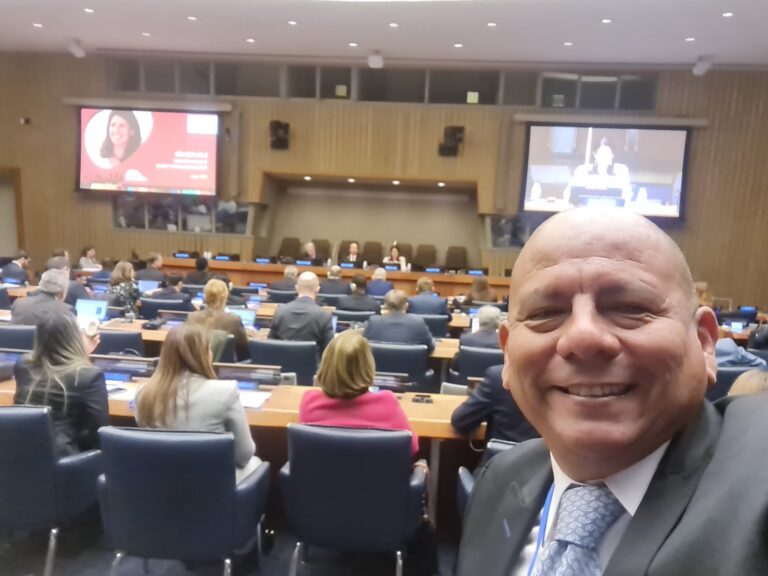The US Food and Drug Administration (FDA) has sent Stephen W. Mumford, President of the Center for Research on Population and Security and chief advocate of quinacrine sterilization worldwide, a detailed “warning letter.” The agency requested that Mumford and the Center “immediately halt all distribution of any and all quinacrine under [his] control, identify its location and voluntarily destroy it under FDA supervision.”
The FDA’s Center for Drug Evaluation and Research signed the letter which declared that their investigation had concluded ‘“quinacrine pellets for non-surgical female sterilization is an unapproved new drug and a misbranded drug in violation of the Federal Food, Drug and Cosmetic Act.” Sterilizing women with quinacrine is “an unsafe use of this product.” The letter also declared that because the drug is misbranded, it cannot be exported legally.
Quinacrine pellets are small and inexpensive to produce. When inserted into a woman’s uterus close to the fallopian tubes with a modified IUD applicator they dissolve into quinacrine hydrochloride, a powerful acid. The resulting chemical burns are supposed to sterilize the woman by scarring the fallopian tubes and surrounding tissue.1
Mumford has attracted foundation grant money to help him acquire stocks of the drug, He and Elton Kessel, another quinacrine advocate, have been documented traveling around the world with suitcases filled with the drug to distribute to individuals willing to use it on women.2 Kessel was actually on hand when one Bangladeshi woman died soon after undergoing an early form of the sterilization procedure, but refused to stop advocating it.3 No government in the world openly approves or allows its use, though not all have banned it, leaving the door open for some individual doctors to continue using the method.
The letter appears to have been the latest move in an ongoing dispute between the chief federal drug watchdog and the world’s most vocal quinacrine advocate. “Toxicology, genotoxicity and carcenogenicity studies are normally part of appropriately designed, well-controlled clinical trials,” the Agency noted, adding that it “is unaware of any scientific evidence from adequate and well-controlled studies that this drug is generally recognized as safe and effective.” The letter stated that agency staff explained these requirements during a meeting with Mumford on 8 May 1998, though he has done little or nothing to fill the research gaps about the drug.
Agency slam-dunks defense
FDA particularly focused on Mumford’s oft-repeated assertion that sterilizing women with quinacrine is sound medical practice because the United State Pharmacopoeia (USP) lists the procedure as one of the approved uses of the drug. The agency noted that “the USP is a standard-setting organization in the areas of strength, quality, purity and method of analysis.” But added, “the fact that an ingredient is listed in any of the USP publications does not mean that your product or another product is necessarily recognized as safe and effective for its intended uses.” The Agency added those USP materials “are not ‘full-disclosure’ documents that include all the information required by law and regulation.” The USP is currently revising its quinacrine listing and is expected, in light of the FDA’s letter, to remove the listing for quinacrine sterilization entirely.
Destroy the stocks
The letter’s tone got particularly urgent when it noted that Mumford had declined to tell FDA where he stored his stock of roughly 290,000 pellets and over 1500 applicators, each full of quinacrine (the Wall Street Journal reported in June that he stored these in his basement).4 The agency was alarmed that “this product may be exported to another country or distributed in the United States.” Failure to comply with FDA’s warning, “may result in regulatory action without further notice,” the Agency cautioned, adding “actions may include “seizure, injunction, and/or criminal prosecution.”
Use in US averted?
FDA’s letter and follow up may put the brakes on a small movement to start using quinacrine in the United States. An abortionist in Fort Lauderdale named Michael Benjamin, of BSS International, and another in Minnesota had both gone on record as willing and even eager to start sterilizing women with acid or as supportive of the idea. Benjamin’s website declared:
At BSS International, we are eagerly awaiting the first shipment of Quinacrine in pellet form to be produced in the U.S. We expect no difficulty in making QS immediately available to the significant segment of our family planning patients who wish to be sterile but for medical, financial or psychological reasons are not candidates for surgery. Our view is that the current state of knowledge of QS (over 100,000 cases reported) combined with published USP data allows conformity with the FDA’s ‘off-formulary use’ regulations.
Currently no US manufacturer has stepped forward to publicly admit to either manufacturing the drug itself or to importing a raw form of the drug to manufacture it into the necessary pellets for the sterilization. A US company may be doing so, however, as the FDA has detained two lots of raw quinacrine at US docks this year, one in February and another in June. The Agency would not release the name and address of the person or company to whom the raw quinacrine was destined. When informed of the FDA’s letter on quinacrine a spokeswoman for Benjamin, who would not give her name, said only that the doctor would “review” the letter and make a decision about the procedure later. As of mid-January, the doctor’s website at www.drbenjamin.com still offered the quinacrine sterilization procedure. Mary Lewis, a public affairs specialist with FDA’s South East District, confirmed that Mumford had responded to FDA’s letter but added that his response was still “under investigation/review.” When contacted about the letter, Mumford confirmed that he had responded to the FDA but characterized the furor over his allegedly safe contraceptive method as “an incredible exhibition of behavior.” “Quinacrine is the safest contraceptive method of all the methods. It’s tragic it’s not going to be available to poor women in the Third World,” Mumford said, continuing in the conspiratorial vein for which he has become so famous: “Clearly the needs of the papacy rather than the needs of women are being served here. I believe that institutions exist to serve man. The papacy exists to perpetuate itself.” He also confirmed he plans to publish a detailed response to the entire FDA affair in a “scholarly journal where this whole controversy belongs.”










